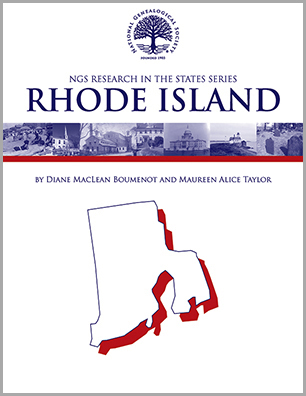 Almost four hundred years ago, Roger Williams, a minister who believed in universal religious freedom and the separation of church and state, founded the Colony of Rhode Island and Providence Plantations. Known for its independence, Rhode Island did not establish a state capital for several centuries. With the advent of the American Industrial Revolution, which began in Rhode Island, the nineteenth century witnessed the departure of Rhode Island families from their scraggly farmland to points north, south, and west. It also saw the arrival of a booming immigrant population, who were employed at the mills.
Almost four hundred years ago, Roger Williams, a minister who believed in universal religious freedom and the separation of church and state, founded the Colony of Rhode Island and Providence Plantations. Known for its independence, Rhode Island did not establish a state capital for several centuries. With the advent of the American Industrial Revolution, which began in Rhode Island, the nineteenth century witnessed the departure of Rhode Island families from their scraggly farmland to points north, south, and west. It also saw the arrival of a booming immigrant population, who were employed at the mills.
Given its history, Rhode Island presents family historians and genealogists with exceptional challenges. The authors share their intimate knowledge of Rhode Island’s genealogical records and their historical context. Researchers learn about the state’s unique record sets, seaman’s protection certificates, divorce records, and a wide array of town records, where most governmental operations took place. The book covers important repositories and libraries. Records for Native American, early English settlements, and additional immigrant groups are all covered, with guidance on census, church, town, court, immigration, military, newspaper, and vital records.
Published by NGS, Research in Rhode Island is one volume in the Research in the States series edited by Barbara Vines Little, CG, FNGS, FUGA, FVGS. It is available for purchase in the NGS online store in both PDF and print versions.

 Diane MacLean Boumenot has worked to demystify Rhode Island genealogical research on her website One Rhode Island Family and in her four presentations at Legacy Family Tree Webinars. She volunteers at the Rhode Island Genealogical Society and the Massachusetts Society of Genealogists.
Diane MacLean Boumenot has worked to demystify Rhode Island genealogical research on her website One Rhode Island Family and in her four presentations at Legacy Family Tree Webinars. She volunteers at the Rhode Island Genealogical Society and the Massachusetts Society of Genealogists. Maureen Alice Taylor is an author, lecturer, and former president of the Rhode Island Genealogical Society. She has written three books on Rhode Island and numerous articles. Other publications include The Last Muster (2 vols) and The Family Photo Detective.
Maureen Alice Taylor is an author, lecturer, and former president of the Rhode Island Genealogical Society. She has written three books on Rhode Island and numerous articles. Other publications include The Last Muster (2 vols) and The Family Photo Detective.